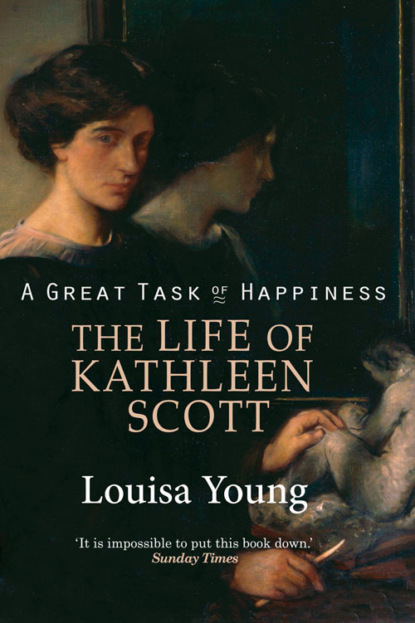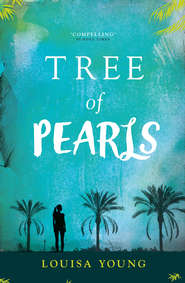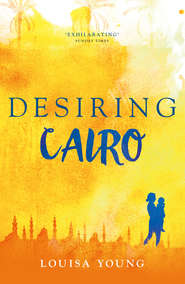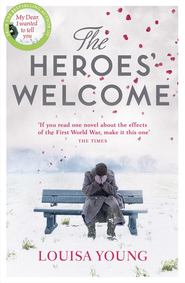По всем вопросам обращайтесь на: info@litportal.ru
(©) 2003-2024.
✖
A Great Task of Happiness: The Life of Kathleen Scott
Настройки чтения
Размер шрифта
Высота строк
Поля
25th: Cheerful sort of Christmas, eh? Never mind. I had a letter, a great event. Gave out blankets, and went a tramp round the town, but feel very useless and stupid. On the hill to the back there are some fifteen corpses still lying, all horrid and dried, unburied.
30th: Wednesday: Rode to Vernik. Hideous roads. Very poor and miserable. Even the children’s faces seem wrinkled with a chronic shiver. Women tell one their horrible tales, but one has heard them before. Little boys look starved, but one knows they are starved. Old old priests tell how they have been beaten, but others have been beaten. Our whole being is pity.
Her worries she kept to her diary on the whole; but in one letter to Rosslyn she said how lonely it was to have no one to call her anything but ‘Miss Bruce’. Kathleen liked and respected Lady Thompson, and worried that she was miserable or sick, but as Brailsford wrote years later: ‘Lady Thompson was a stiff and conventional person, and she and Kathleen were temperamentally poles apart.’ One rare sunny morning Kathleen was brushing Lady Thompson’s long hair, and singing a comic song: ‘I cannot understand,’ said the austere lady, ‘how you can sing with so much sadness all around you.’
Propriety was another problem. On one occasion Lady Thompson took Kathleen aside, when she had touched their Major’s knee after a long hard journey, saying, ‘Why, you’re absolutely drenched.’ ‘You are very young, my dear,’ said Lady Thompson, and explained that it was really a little indecent to touch a man’s knee. Later, when Kathleen had taken off her soaking hat during a rainy ride, that same man rode up beside her
and with many apologies begged me to be so very kind as to forgive him but he had something very delicate to implore me (Oh dear oh dear, my austere lady must have been right; what is coming?). He hated being obliged to ask me, but would I mind, could I please, put on my hat. It appeared that I might ride astride, ride without a skirt, do almost anything, but to have the head uncovered was terribly shocking. With deepest and most serious apology I put on my soaking cap, and never again offended. Then I turned over in my mind the prejudices of the middle aged lady and the Turkish soldiers, and thought I had my work cut out for me: perhaps somehow, somewhere, there would come a time when it would be right to be simple, direct and innocent. But that time never came.
Her escape was to go out riding on the tough little Turkish horses, one of which she bought for £7. She became quite used to riding astride, and rather preferred it. Henry Brailsford remembered her as ‘a very spirited and attractive young woman. I doubt if she had ever been on horseback before. That was like her. Nothing daunted her.’ But even riding was generally accompanied by the spies in uniform: ‘We are never allowed outside this little town without 12 or 15 Turkish Cavalry, an officer and several policemen. Even in the town we have always to have an armed escort, and a policeman is stationed in our passage… Yesterday we had to pass through a favourite brigand pass—we were forty-two, all armed! … A real-live gorgeous staff major never leaves us,’ she reported in a letter, being cheerful. When she did escape alone, she found dismembered limbs out on the mountainside, arranged like the limbs of a starfish.
No relief was found either with the wives of the local notabilities with whom they stayed when doing the rounds of the villages.
En route we stopped for half an hour chez un Bey and were forced to go to his Harem. The women there were the worst things made in creation, hair dyed scarlet, teeth absolutely black, and fat, ma chère! fat to such a degree that one became physically unwell in seeing them—barefooted, and hideously indecent in word and gesture. It was indeed a relief to go back to the rough cavalry after that den of harpies.
On New Year’s Day 1904 they mounted their horses and rode to Smrds. ‘Don’t comment that there are no vowels in their words: there is no water in their houses, no streets in their towns and no justice in their land.’ Smrds had been one of the wildest and fiercest of the rebel towns. Small boys refused to study in school; a five year old explained that studying wouldn’t help them to shoot Turks. The ambition of the people there was to survive through winter so that in the spring they could fight the Turks again, and no doubt get killed that way. ‘It seems a false economy,’ Kathleen wrote to Rosslyn. ‘Once begun however one must go on, so heaps and heaps more money must be sent.’ It was getting very cold: Kathleen wore five layers of wool, and slept in a sleeping bag, two blankets, a fur coat, two golf capes and a fur cloak, with hot water bottles, and still froze. And it was damp. And ‘Mud, mud, mud, oh dearie man,’ she wrote, ‘do you know you have never seen mud never in all your life.’ She kept warm on the affection and gratitude of the people she helped, and longed to bring the babies home with her, but made do with supplying bundles of cloth for their mothers to dress them in.
Her other pleasure was the landscape. ‘This is the most detestable country I ever knew… nothing attractive in all the land except the views which are exquisite.’ She marvelled at the ice: ‘perilous and wonderful, but beautiful white mountains stood against a deep clear blue sky, too impressive for fairyland, but too brilliant to be true. Ice, snow, eagles, vultures, the sound of the bells of trains of mules in the valley below, the soldiers singing their weird songs, a good smell of horses—enfin, every sense gratified.’ When Rosslyn went to Macedonia he taught his infidel escorts to sing hymns—they particularly liked ‘Onward Christian Soldiers’.
On 17 January Kathleen heard that her brother Wilfrid was ill. On the 18th she cut out 19 shirts, 12 pairs of knickers and 16 babies’ outfits, and noticed that she was covered with an extraordinary rash. ‘I don’t want to die out here. I can’t die without seeing Wilfrid. I say “die” because I could not be ill out here and not die, of that I am convinced.’
20th: Set out at 7.30. No sooner had we started than a terrible storm of wind and rain came on. Snow! It was rather great slabs of frozen horror that hit you in the face, and cut. It blinded and choked me and made me so numbed I was incapable of resisting the infuriated gallop of my little animal, who sought to extricate himself from the horror that surrounded him. This lasted for miles, over horrid ridges, streams, boulders, everything ...
The next day ‘I was a little ill, but would not be so.’ That night she ran a fever of 105°; then followed delirium, haemorrhage, coughing up blood, and a temperature of 107°.
She was nursed at first by a Greek carpenter, Nico, who spoke no English and only a little French. He did his best for her, but only once did she rave in French, and all that he could make out was that she wanted him to bring her old white pony to her. The room was at the top of a steep, narrow staircase, and realizing that he really could not satisfy the only wish he had been able to understand, he wept. Rats ran around her bed at night, but they gave her comfort because they reminded her of Rosslyn’s rats from her childhood.
The disease was ‘a malignant type of influenza with symptoms like typhoid’ as Brailsford described it; it was epidemic and many died of it. Kathleen was not one of them, largely because of the reappearance of Jane Brailsford, who ‘descended as if from heaven, and the will to live was supported by the dear devotion of this young Englishwoman’, as Kathleen wrote years later. At the time she wrote in her diary, ‘It is splendid to have someone. She is most good and thoughtful.’ Mrs. Brailsford acquired clean sheets for her, and slept in her room throughout the delirious nights.
By 30 January Kathleen was writing to Rosslyn: ‘Sorry I couldn’t write the last week or two, I was too busy striving with death. But I won! So here goes. The Turks still put every kind of difficulty in the way of every step one takes. You think of some nice little scheme to help some people with something, and down come the authorities and put a stop to it, stating no possible excuse or reason …’ Though her tone is jolly, the litany of misery continues: a child with a face ‘which was already like that of a corpse, quite without colour or any look of intelligence’; the ‘hideous, most malicious’ influenza epidemic, walls falling down and burying people. She wonders rather pathetically if perhaps Rosslyn and Nigel might ‘come and fetch me and we [might] go home by Athens a little.’
On 2 February she is in bed, but cheerful: ‘There is a funny little Turkish girl of about fifteen sticking her nose into my letter in terrified wonder that I can write. Now she has discovered Lady Thompson’s stays (for all the world walks in and out of our bedroom—our officer, the post and all). She is holding them up and shrieking for joy.’ Later in the same post she reports having heard from Brailsford that soldiers were beating up ‘our ill people on their way to our hospital. Can you imagine anything so horrible?’ Stuck in bed, she felt useless and miserable, ashamed of not having finished her work even though all the relief workers were being warned that they would soon have to pack up and leave, as the spring approached and the Komitadji started action again. The expectation of renewed fighting was universal.
By 6 February she had had three more fevers, but by the 12th she was well enough to travel to Klissoura by ‘antediluvian cacique’ and ‘ramshackle open carriage’. The most upsetting thing about the journey was the moans and groans and ‘Mon Seigneur, c’est pour vous que je souffre’ (Oh Lord, it is for you that I suffer) of the French nun with whom she was travelling, as they passed through a snowstorm. At Klissoura she reported ‘the drollest of adventures, which may not even be written in a private female notebook. But ah! I shall nevertheless not forget’, which was very annoying of her.
In Salonica she stayed a week with the Sisters of St Vincent de Paul: ‘nice, good souls, absolutely without self-control, the most arrant chatterboxes I ever knew. I haven’t had a word of religion spoken to me, and that’s just as well or I should be obliged to go away. One can’t help mocking a little sometimes at the things which are attributed to the almighty, and the absolute lack of logic in their exclamations. But here is a subject on which I could mock for pages … à quoi bon?’ (To what good?)
To get away from too much Christianity she went to a mosque:
I had taken the precaution to put myself on excellent terms with the two men who guard the mosque, having spent half an hour sitting in their garden and picking their flowers … Outside there is a fountain at which each man washes his feet, his arms to the elbow, his face and behind his ears. Then he enters barefoot, carrying however his shoes. From within are called prayers and instructions, amongst which is a supplication that the powers of the world may never agree. They stand, kneel, prostrate themselves in turn, and sometimes they place their thumbs behind their ears; finally they turn their heads slowly to one side and then the other, and then get up and go away. All move as one man, very much superior to their military drill. I am told it is an exceptional favour to be allowed to be present on such an occasion.
She was still ‘preposterously weak, and I get hot and cold all about nothing. But I can walk now, thank god!’ At the end of February she left by sea, heading for Marseilles, looking forward to home. She felt as if she’d been away six months, but in fact it was not quite three.
Kathleen boarded her steamer for France in high spirits. But the boat was small, the sea was rough, and she was the only woman passenger. Though her health had returned ‘in waves of well being’, her seasickness was so terrible that by Naples she could bear it no longer and jumped ship. She had little money, no Italian, and no acquaintance in Naples, so she fled for peace and quiet to Capri. ‘There I engaged a tiny room at the top of a small hotel, and stayed until the earth grew steady again under my feet.’
When it did she realised that she was ‘magically and unaccountably’ in Italy, and decided to go to Florence to see the art. She knew students there who lived on next to nothing. After the long terrible winter in Macedonia, spring in Florence was a joy, as her autobiography tells.
At all times convalescence is a sort of delirium, tasting life again and tasting it abundantly. A slight guilty feeling that my studio lay empty, my work undone, my painter Hofbauer, Hener and Isadora, who all rather looked to me to stir them, all neglected; and neglected the Macedonian Committee, which should have been reported to personally. All these guiltinesses perhaps enhanced the glory of the weeks that followed. I found a little art school. I found too a band of light-hearted English students, some of whom I had known in London. I found Charles Loeser, a great connoisseur of things Florentine, eager to show me, to teach me, to explain to me carefully the distinguishing features of trecento and quattrocento mouldings, to make me look beyond the Donatellos and the Michelangelos, which might otherwise have satisfied me. I found a grand young singer, Von Warlich, who would walk home along the Lung’Arno with me at night, singing so gloriously that even the crotchetiest old maid, woken in her pensione, could surely not complain. I found an entrancing dwelling on the Via dei Bardi. It consisted of one room on the fifth floor up an old solid stone stairway, one room and a terrace. The terrace hung out over the Arno with the Ponte Vecchio on the left and straight opposite a high tower, which belonged to my middle-aged friend the connoisseur. When, as often happened, we had dined together in his lovely house or in some underground cellar restaurant, there was always a solemn ritual. We would wave our candle to each other across the river before turning in. I found bathing parties, dances, revels and copious sunshine. Health came back by leaps and bounds. There were queer and ugly things in Paris. There were ugly and terrifying things in Macedonia. Here, to me at any rate, all seemed as spontaneous as a Botticelli picture.
Another friend she found was Herbert Alexander, a sun-browned, bleached-haired English painter, with whom she danced by moonlight. He told her of his explorer brother who had been ‘destroyed by natives, probably cannibals’, and invited her to watch the sunrise from Fiesole, on the hill above Florence.
It was misty, almost foggy. Not a sign of Florence was to be seen, just an ocean of clouds, gold, blue and white, with the sun shining down on it from the east. We stood shyly, transfigured with the rare, the unusual beauty. Florence was lying hidden, ‘a bosomer of clouds’. Just as that thought ran through my mind, the clouds settled a little, and the great dome of the cathedral shone out firm and clear, as though the lovely Firenze had turned in her sleep, thrown aside her white linen and bared one shining breast. The lad and I held our breath with joy and wonder.
She slept, as ever, on the terrace. Across two rooftops on the right lived Herbert and another young painter. ‘One night about two o’clock, under a low crescent moon, I woke from sleep feeling something near me. I lay absolutely still; keeping my eyelids all but closed I saw kneeling by my bed, with hands together like a medieval saint, the quiet figure of Herbert. His hair as well as his clothes looked white under the moon, and his face very still and radiant. My heart knocked, thumped, roared in my ear, but I lay deathly still, scarce breathing. So we stayed. At last, very very stilly, with an athletic movement, he slipped back on to his bare heels, and raised himself to his feet and tiptoed to the buttress of my terrace, swung himself lightly on to it, and climbed with sure-footed agility over the roofs, his lithe figure showing up now and again against the sky.’ She never told him that she had been awake.
A few days later she and Herbert set off with knapsacks and bathing costumes to vagabond in the countryside. Initially she tried to disguise herself as a boy—her hair was still short after the illness—but no matter what she put on ‘I would look like nothing but a fat German boy of about sixteen, a risible figure’, so she borrowed peasant clothes from a lace maker who lived in her building. For three weeks they wandered, walking twenty miles a day, sleeping in haylofts and caves and riverbeds, bathing in lakes, hanging their clothes to dry on bushes.
‘Getting meals in these mountain villages was always in the nature of an adventure. I knew no Italian and Herbert next to none.’ Local people fed them, and assumed that they would want meat.
When they found that bread and cheese and eggs sufficed they became, with scarcely an exception, animated and delighted to bring out their best. Almost always they refused payment at first, and often at last too. Sometimes, if there was a beautiful daughter, or an attractive child, or a characterful old man, they took pay for food in the form of a watercolour sketch. This in some places was tremendously popular. Quantities of lovely creatures presented themselves as possible models offering food and shelter in exchange.
My heaven was so many sided! Never before had I seen fireflies. In some places the woods in the early night were bright with them. They would even settle for a moment on my arm. One such lovely night we made our camp in a small wood. I spread my mackintosh sheet, wrapt my blanket over me, and turned the spare half of my mackintosh sheet over me to keep off the dew. Suddenly I felt something moving under my pillow.
It was a mole, wriggling about underground, and Herbert had to come from his bivouac, a gentlemanly distance away, to help her find what it was that could be felt but not seen. By the time they had tracked it down and laughed about it they had attracted the attention of two country carabinieri who were patrolling the road.
We simple innocents were tracked down by these vigilant sleuths, themselves even more simple and innocent than their victims. Followed a conversation that nobody understood. Finally we arranged to explain that though we couldn’t explain ourselves in Italian, we could in French. ‘Ah, Enrico,’ said one policeman to his mate, ‘you’ve always said you could speak French, now’s your chance. Ask them what they’re doing here.’ A considerable pause, while everybody turned hopefully to Enrico. Finally, very slowly and deliberately, Enrico addressed me. ‘Quel est le prix du beurre à Paris?’ With elaborate composure I replied that butter, when I left Paris, cost two francs a kilo. Enrico turned triumphantly to his colleague. ‘It’s clear we must take them to the police station.’
Our detention was abbreviated by Herbert’s suggestion of a bottle of Chianti in the adjoining café before it was too late. This idea seemed easy to grasp and was fallen in with. A good deal of laughter ensued, and we wayfarers were allowed to disperse, with the injunction that we must never sleep out again. To this injunction we complied for about half an hour.’
‘It’ll be a bore not being able to tell people our lovely adventures,’ she said to Herbert.
‘Won’t we be able to? Why not?’ he replied.
‘Because we mustn’t tell anybody. Well, you could perhaps, because you could pretend you were with another boy, but I wouldn’t pretend I’d been with another girl—too dull.’
‘I shan’t pretend. I shan’t need to tell anyone. I’ll just put it by and hoard it,’ said Herbert very gently and slowly.
And so she returned to Paris, ‘looking more like a sun-gilded Amazon than a typhoid convalescent’.
FIVE Isadora’s Baby (#ulink_74b9785c-6f20-5c7a-837f-d8ecbf8cbbc9)
1906
IN 1906 ISADORA’S ‘terrible things’ began to happen. Kathleen’s first intimation was in a letter from the Hague, ‘a queer cry, childish and pathetic. Would not, could not I come to her? Her need was very great, very very great.’ (Isadora in her autobiography says that Kathleen just ‘arrived’, but Isadora was often inaccurate on details and the fullness of Kathleen’s account makes it convincing.)
In high summer Kathleen locked her studio and set off to Noordwijk, a tiny village on the coast of Holland, where her friend was staying in a little white house called Villa Maria. She found Isadora ‘very pitiful, very helpless and for the first time very very endearing.’
‘Poor darling, what is the matter?’ ‘Can’t you see?’ cried the dancer, spreading high her lovely arms. Slowly, and with many a lie, the story came out at last. A well-known Englishman with a wife, a mistress, children, dissolute habits and no money had entranced her body and mind, and her baby was due in a month or two.
The well-known Englishman was Edward Gordon Craig, the illegitimate son of the great actress Ellen Terry and Edward Godwin. His accomplishment was to revolutionize theatre design, despite producing fewer than half a dozen complete shows in his life. Simply, he was the first to propose that the set for a forest scene did not have to be bundles of foliage, and that ‘realistic’ was not the only way to present artistic truth. But he could not work with other people. He tried, and it infuriated all concerned, including him. He was astonishingly attractive and remarkably talented, one of those who don’t bother even to try to excuse egocentricity and selfishness because it is all for their work, not for them. His amours, according to Max Beerbohm, were ‘almost mythological’. Kathleen in fact slightly underestimated his involvements; he had, when he and Isadora first met in 1904, seven children by three women: his wife May Gibson (he left her during her fourth pregnancy); his mistress Jess Dorynne (he left her during her first pregnancy), and Elena Meo, who was expecting her third child by him and remained faithful to him all her life. But he and Isadora fell in love, and love, to Isadora at least, was simple and all-consuming.
‘This was the meeting of twin souls,’ she wrote in her autobiography. ‘The light covering of flesh was so transmuted with ecstasy that earthly passion became a heavenly embrace of white fiery flame. There are joys so complete, so all-perfect, that one should not survive them.’
Within weeks of first meeting Craig, in Berlin in December 1904, Isadora was writing to him: ‘Thank you thank you thank you for making me happy—whole complete I love you love you love you and I Hope we’ll have a dear sweet lovely baby—and I’m happy forever. –your Isadora.’
At the same time he was writing, in his special Isadora diary: ‘Do I love her? Does she love me? I do not know or want to know. We love to be together… Is that love? I do not know. She says she loves me. What does that mean from her? I do not know.’
A few weeks later they were having a conversation in note form:











